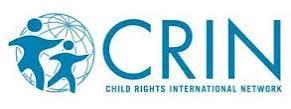
https://www.crin.org/en/library/news-archive/press-release-first-global-...
15.02.2016, London] New research from Child Rights International Network (CRIN) has analysed and ranked how effectively children can use the law to challenge violations of their rights, in the first-ever global study on children’s access to justice.
Topping the list are Belgium, Portugal and Spain, with Kenya the only country outside Europe to make the top ten. Relegated to the bottom of the pile are Palestine, Eritrea and Equatorial Guinea.
CRIN’s director Veronica Yates said: “When we think of children and justice, the first image that comes to mind is usually one of children breaking the law. Rarely do we consider children and their right to use the legal system to protect their human rights or to seek redress when their rights have been violated.
“Access to justice is about challenging the perception of children as just victims or somehow less worthy of justice than adults. It is about recognising that children, like adults, have human rights and that when these rights are infringed they should be able to trust and use the legal system to get justice.”
The research takes into account whether children can bring lawsuits when their rights are violated, the legal resources available to them, the practical considerations for taking legal action, and whether judges apply international law on children’s rights in their rulings.
The report also offers a model of what access to justice should look like for children. ‘Eutopia’ was created by collecting examples from around the world. While many come from countries at the higher end of the ranking, others were found in countries such as Angola, Montenegro, Jamaica, Nepal, the Philippines or Eritrea.
CRIN wants this report to help provide new ideas and tools for those working to prevent violations of children’s rights and to demonstrate new avenues of legal redress, whether in the struggle for citizenship rights in Kenya, securing access to education without fees for millions of children in Colombia, or defending children’s right to a healthy environment in the United States.
Chairperson of the UN Committee on the Rights of the Child, Benyam Dawit Mezmur, said: “Country rankings are not just there to highlight who is doing well and who is doing poorly but more importantly they have the ability to stir States to action, prompting them to improve and claim a spot higher on the ranking ladder.
“The Committee welcomes this research and already envisages its concrete contribution to its various engagements with States.”
MORE ABOUT THE REPORT (https://www.crin.org/en/library/publications/rights-remedies-and-represe...)
Access to justice is a human right, but it is also what makes other rights a reality. For children’s rights to be more than a promise, there must be a way for those rights to be enforced.
Access to justice for children means that children, or their appropriate advocates where applicable, must be able to use and trust the legal system to protect their human rights. The legal system must provide children the means to obtain a quick, effective and fair response to protect their rights; the means to prevent and solve disputes; mechanisms to control the abuse of power; and all of this must be available through a transparent, efficient, accountable and affordable process. The importance of access to justice applies equally to children and adults, yet children’s rights in this area have long been neglected and ignored.
This report is the result of a research project scrutinising how the legal systems of 197 countries empower children to realise their rights or perpetuate the rights violations that they should combat. With the support of hundreds of lawyers and NGOs from around the world, we have published a report for every country on earth setting out the status of the UN Convention on the Rights of the Child in national law; how the law treats children involved in legal proceedings; the legal means available to challenge violations of children’s rights; and the practical considerations when challenging violations using the legal system.
This research shows the way that national legal systems can be used to challenge violations of children’s rights and the ways that children can use the law to assert their own rights. It identifies where the law falls short and where legal systems are designed in ways that make it difficult or impossible to combat abuses of children’s rights. We have documented the good, the bad, the effective, the ineffective, the radical and the revolutionary ways that children can access justice around the world and now we want to use this information to promote their rights.
It is not just governments that have a role to play in improving access to justice for children; myriad individuals and entities have an impact, from courts, national human rights institutions, the UN and regional bodies to civil society, parents and other legal representatives, lawyers, the media, and donors. We hope this project will guide governments on how to improve children’s access to courts and other complaints mechanisms to enforce their rights, and encourage the UN and regional bodies to address children’s access to justice in a more systematic way throughout their work. We hope it will inspire NGOs and children’s advocates to consider stronger and more strategic forms of advocacy, and encourage lawyers to assist children and their representatives with seeking redress through the legal system.
Access to justice should be at the core of guaranteeing children’s rights around the world.
READ THE FULL REPORT: https://www.crin.org/sites/default/files/crin_a2j_global_report_final_1.pdf
READ THE RANKING: https://www.crin.org/en/home/law/access-justice/access-justice-children-...










Add new comment